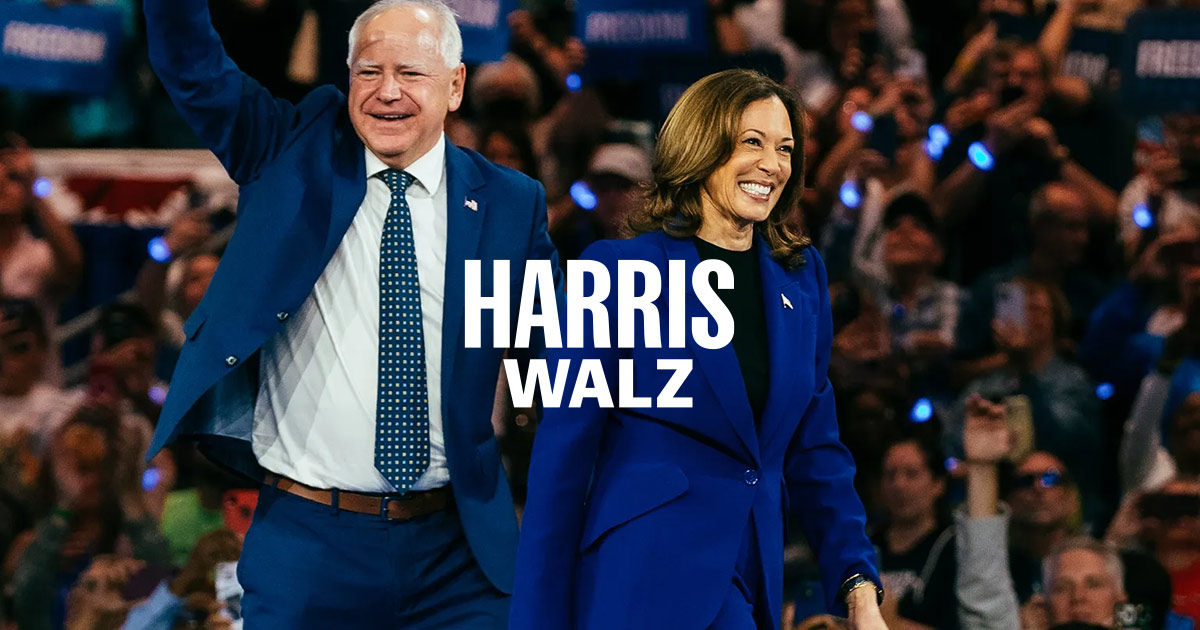The Harris-Walz campaign has said they want to create a federal ban on corporate price gouging (usually mentioned when folks talk about price hikes in grocery stores). I see economists complaining about variations of this policy being bad, e.g. leading to food desserts. But as far as I can tell there hasn’t been anything specific proposed. Could someone explain our best guess at what they are proposing, and if it’s been serious analyzed/tested elsewhere?
They cite existing legislation in the states; maybe explaining what that legislation does/how it works would be helpful?
My cynical view is that this is a campaign promise that even if passed, won’t lead to anything of benefit for the average citizen. My solidly blue state has price gouging laws and yet businesses were permitted to price gouge water, charging as much as $60 for a 12 pack of bottles, when we had a toxic algae bloom in our water supply and couldn’t drink it a few years ago. Hundreds of complaints were filed and the governor went on the news said they couldn’t substantiate any of it, even with photo evidence, and none of the companies were punished or at most were sent a letter to “knock it off” even though residents were still having to pay these insane prices if they weren’t able to drive hours away to find normally priced bottled water.
I think if we had an actual left-wing party, I’d have a different view, but instead, we have right-wing and diet-right-wing
As President, she will direct her Administration to crack down on anti-competitive practices that let big corporations jack up prices and undermine the competition that allows all businesses to thrive while keeping prices low for consumers. And she will go after bad actors who exploit an emergency to rip off consumers by calling for the first-ever federal ban on corporate price gouging on food and groceries, which will build on the anti-price gouging statutes already in place in 37 states.
Based off this I would see a federal law that penalizes corporation for doing this kind of stuff. Whether or not she does and if the punishments would actually deter these corporations is another matter entirely. The other problem is that it always happens after the fact. To give an example, in Canada there was a big scandal where a huge Canadian retailer, Loblaws, was caught in a bread price-fixing scheme with some other food retailers and it’s parent company George Weston. After 14 years of reaping the benefits these companies whose revenue streams are in the tens of billions were fined only 500 million. It’s more or less a slap on the wrist and just the cost of doing business to these people.
I’d say stuff like stock buybacks and other ways corporations funnel profits away, should be taxed at exorbitant rates. Then start taxing assets like stock portfolios and tax dodging vehicles followed by using assets as collateral as realizing their gains.
“Buybacks were illegal throughout most of the 20th century because they were considered a form of stock market manipulation. But in 1982, the Securities and Exchange Commission passed rule 10b-18, which created a legal process for buybacks and opened the floodgates for companies to start repurchasing their stock en masse.”
Same as banks regulated by glass steagall started fucking with the economy the moment is was repealed. The fairness doctrine for media might also be needed again.
Campaign propaganda.
“OBAMANISM! IT LOOKS LIKE PINKO, COMMIE, GODDAMMNED OBAMANISM! AND I AIN’T HAVIN’ IT!”
Bubbafred McSisterfucker, unemployed 1987 Horseshoe Champion, Goatfuck Holler WV
It’d probably involve a healthy bit of statistical analysis, basically measuring price increases against measured inflation rates and prosecuting anyone statistically outside the standard without a justifying factor like a different formulation for the product or significantly better quality to justify being more expensive.
As for what the punishment would be, I’d say either fining them twice the value of the excess profit, or forcing them to cut prices on all products to twice the margin they went over by until they’ve lost twice the value they effectively stole.




